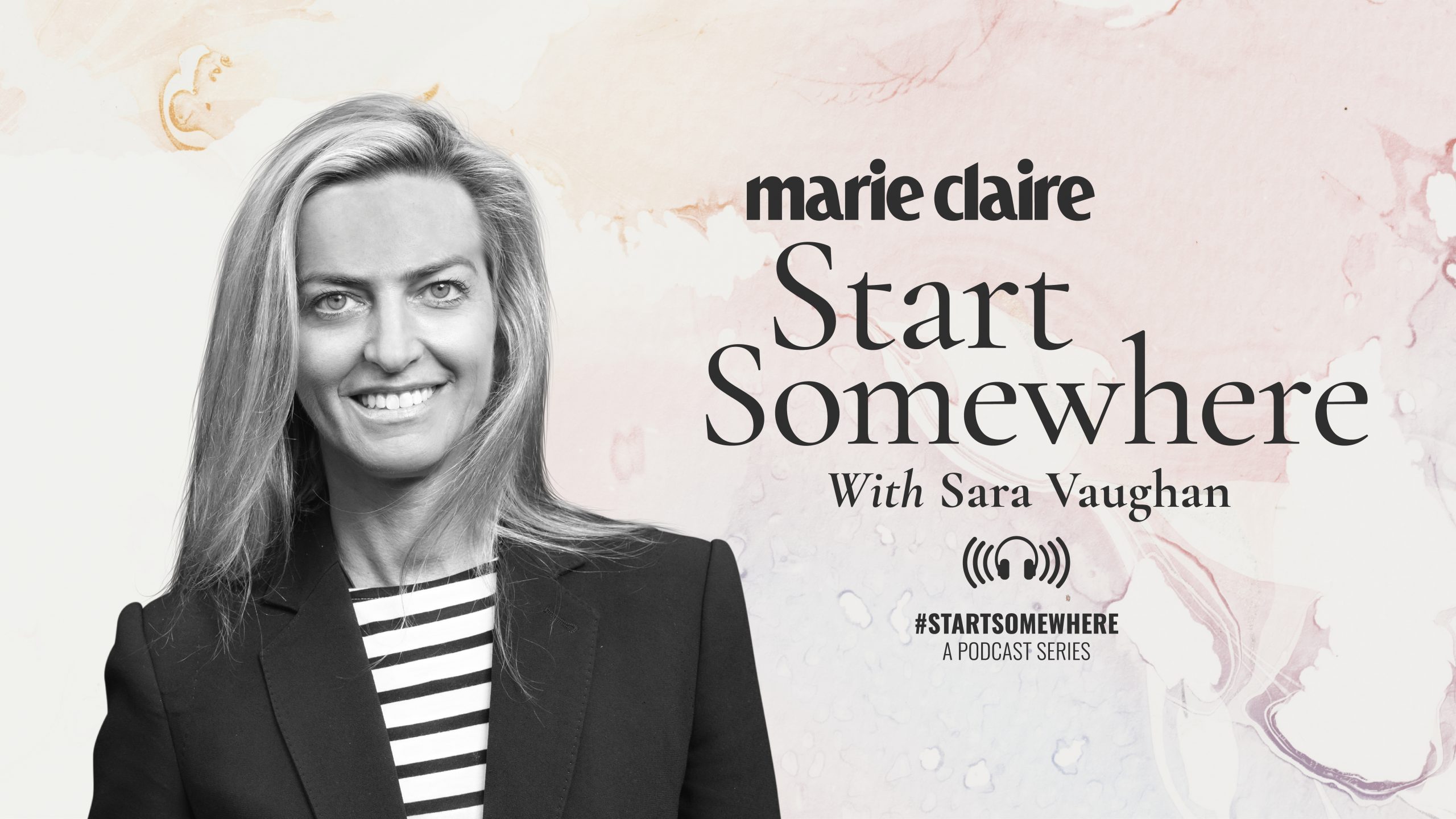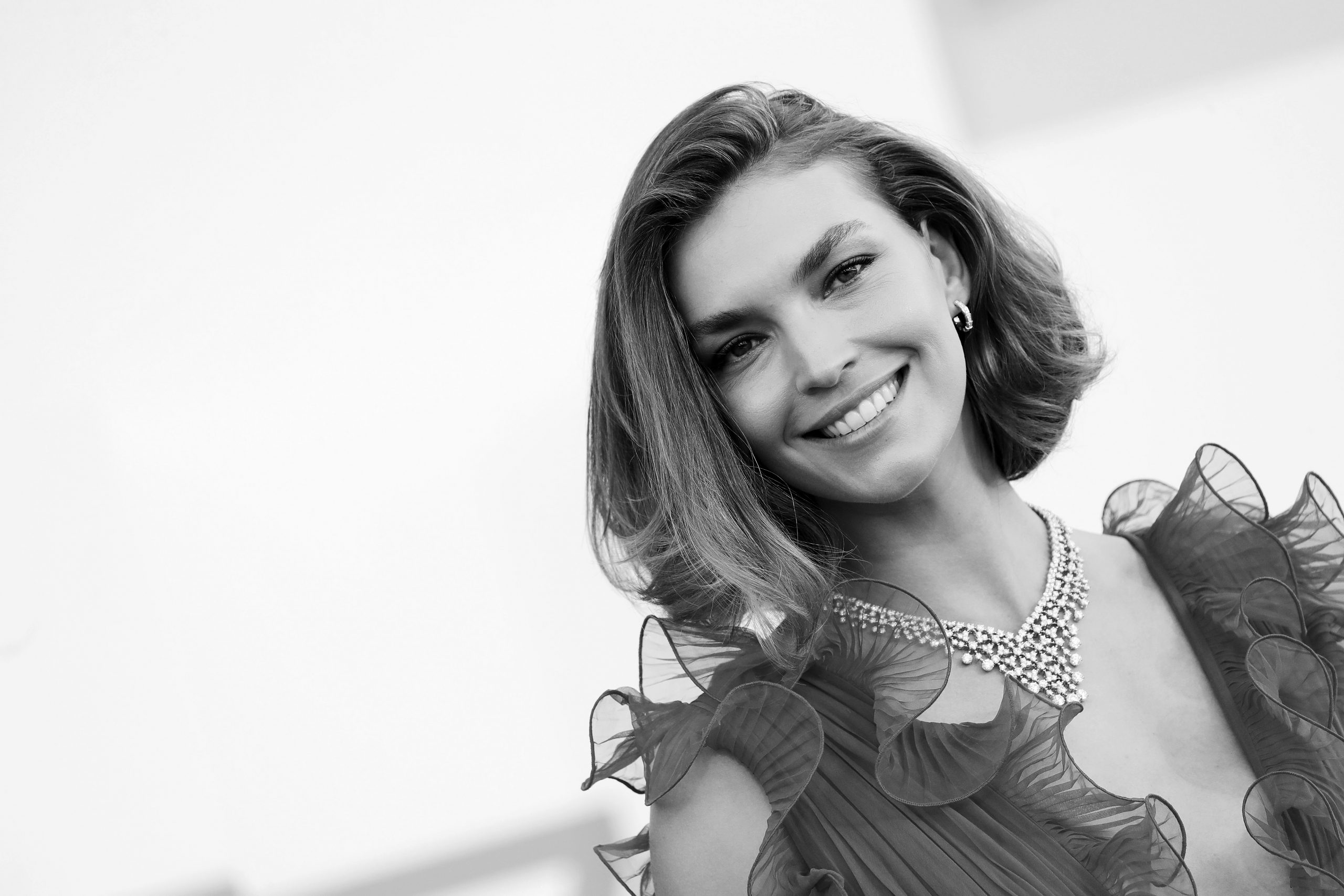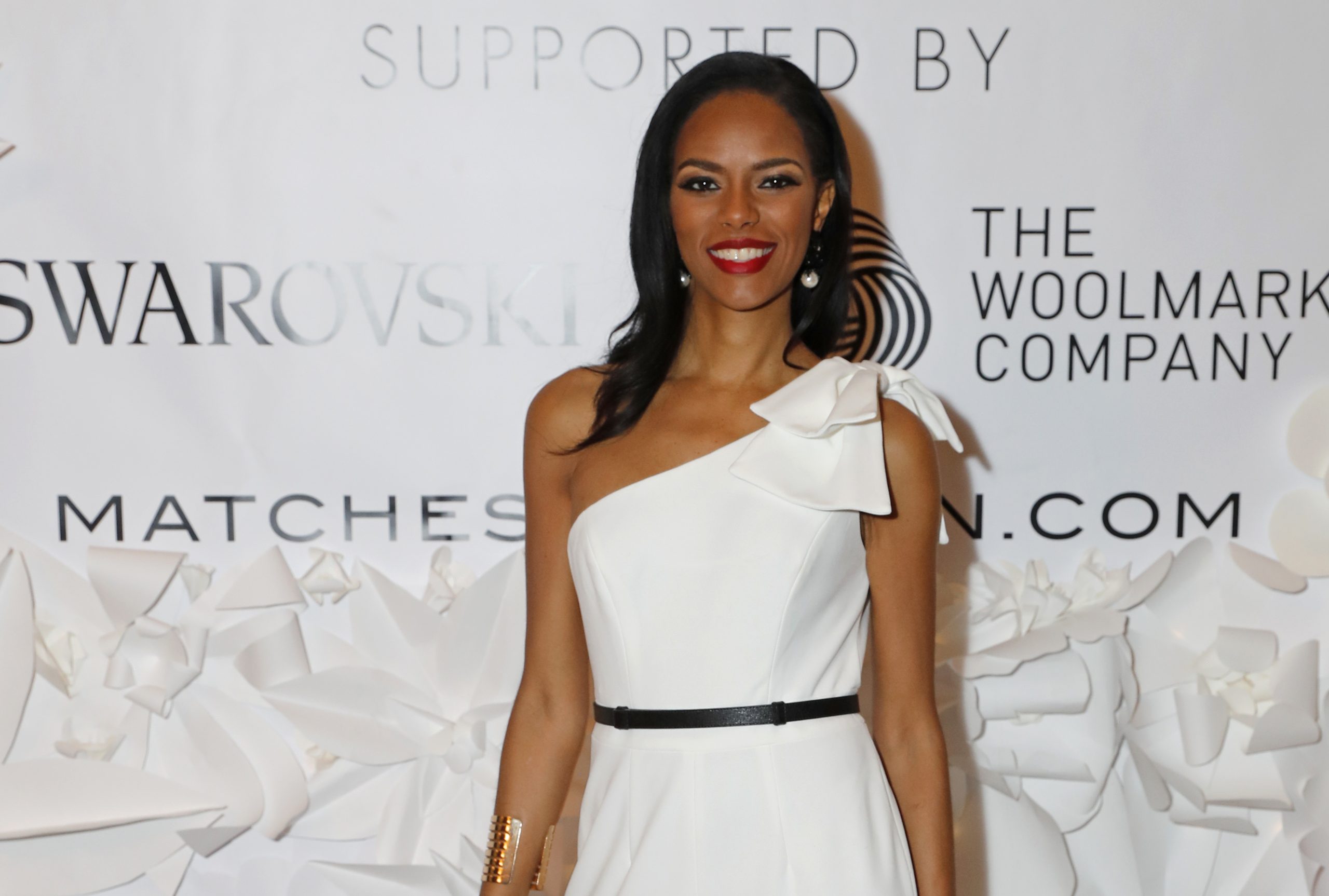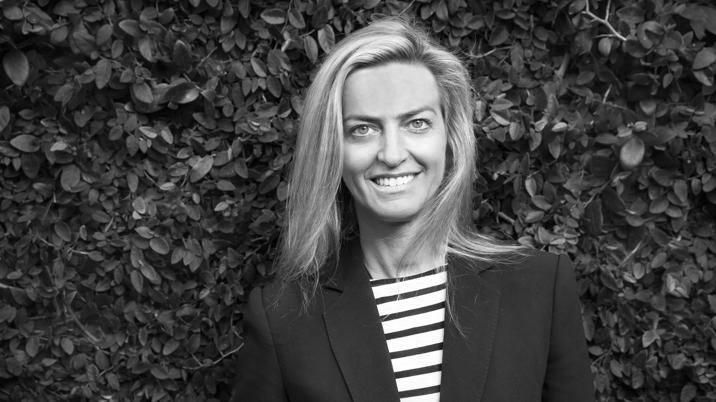Introducing series 3 of our Start Somewhere podcast with Sara Vaughan
Marie Claire’s Start Somewhere podcast is back for series 3. Our Global Chief Purpose and Sustainability Advisor, and Start Somewhere host Sara Vaughan, reveals what’s in store…


Celebrity news, beauty, fashion advice, and fascinating features, delivered straight to your inbox!
You are now subscribed
Your newsletter sign-up was successful
Marie Claire’s Start Somewhere podcast is back for series 3. Our Global Chief Purpose and Sustainability Advisor, and Start Somewhere host Sara Vaughan, reveals what’s in store…
I am delighted to be launching Series Three of Start Somewhere for Marie Claire this week.
For the first time, I am doing a deep dive into a passion area of mine. Fashion. As everyone who knows me is aware, I absolutely LOVE clothes & fashion but I also LOVE our beautiful planet and I really don’t want my passion for fashion to quite literally cost the earth.
As I have written before, the undeniable and uncomfortable truth is that the fashion industry, a $2.5 trillion industry, is one of the largest polluters of the planet after coal, oil & gas. It is also an industry rife with human rights abuses and in some cases, slave labour. Did you know for instance that about 1,800 gallons of water are needed to produce the cotton in a single pair of jeans or about 400 gallons of water to produce a single T-shirt? Clean water is one of the scarcest resources we have on this planet. To put that into context, 1,800 gallons is the equivalent of the average amount of water used by 174 people in a day in the African continent according to UNFPA (2002), Water: A Critical Resource.
So I’m on a mission to find out what really goes into making our clothes. And to make sustainable and purpose-led fashion, fashionable. For if we can change fashion then we can change the world.
Fashion is one of the only industries that cuts right across each one of the 17 Global Goals. In that rush to buy something we really love, we can be eclipsed by its beauty and forget that it’s been on a long journey to get to that hanger or Instagram post.

The unglamorous truth is that fashion has its roots in agriculture & the petrochemical industry. Pretty much everything we wear has been grown or extracted. Denim starts out as cotton. Or plastic, if you wear stretch jeans. Not to mention the potentially toxic dyes. Polyester, the world’s most commonly used fibre is made through a chemical reaction involving coal, petroleum, air and water. Viscose, the third most commonly used, comes from trees. More than 70 million trees are logged every year to turn into cellulosic fabric. This raw wood often comes from unsustainable sources. That wood is pulped, mixed with caustic soda, processed with carbon disulphide, more caustic soda and finally pushed through a spinneret (like a fine sieve) into a bath of sulphuric acid to create fibres. And then obviously there are fabrics like silk, wool, cashmere, leather & down that come from our fellow creatures on this planet, animals.
Celebrity news, beauty, fashion advice, and fascinating features, delivered straight to your inbox!
As for the people who make our products, according to Common Objective, some 430 million people are thought to work in fashion and textile production. That’s roughly one in eight workers in the world. Types of work range far beyond sewing machine operators in garment factories, to include farming, processing, treating, finishing and logistics work among others. Much of this workforce is based in Asia. Poverty, hunger & health are real issues for these workers. As is gender equality as roughly 75% of factory-based garment workers are women, exploitation is rife.
So it is imperative when buying clothes to ask: where did this come from? What natural resources did they use? Who made it? Where they paid properly? How many air miles did it fly? Personally, I would love to see a new clothes labelling system that shares all this information so we can make truly informed choices.

I am by no means alone in my desire to create positive change in this space. The whole Marie Claire team are equally passionate about it. That’s why we are becoming a Fashion Avenger – one of 17 of the world’s largest and most influential fashion-related companies, all of which are committed to playing a significant role in achieving the Global Goals.
That’s also why we are holding The Marie Claire UK Sustainability Festival on Saturday March 27th and inviting you our readers to register and attend for free. We are also delighted that the fashion element will be supported by our fellow Fashion Avenger and British Fashion Council partner, Vanish whose stated mission is to help clothes live many lives.
And that’s why Series Three of Start Somewhere for Marie Claire is devoted to fashion and how it can become more sustainable and purpose-led. So we can all find out more about this industry and the good things that are already being done by some extraordinarily brave, courageous and visionary people.
The series kicks-off with supermodel and sustainable fashion champion, Arizona Muse. We then hear from the incredible Professor Dilys Williams, Founder & Director of Centre for Sustainable Fashion, who shares some very exciting news with us. Gail Gallie, the astonishing Founder of Project Everyone and the Fashion Avengers is next up, then we have the amazing Daniella Vega, Group Director of Sustainability for Selfridges, Bel Jacobs, Founder of Fashion Acts Now, Noella Coursaris Musunka, supermodel & founder of Malaika, Victoria Prew, Founder of Hurr, Saja Elmishri, modest fashion expert, Eva von Alvensleben, Executive Director & Secretary General of The Fashion Pact, Elizabeth Peyton-Jones, Founder of Responsible Trust for Models, Charlotte Staerck, Co-Founder & CEO of Handbag Clinic, Nina Marenzi & Amanda Johnston from the Sustainable Angle & Future Fabrics Expo, Annick Ireland, Founding Director of The Immaculate Vegan, James Bartle, CEO of Outland Denim, Eshita Kabra, Founder of By Rotation, Stephanie Benedetto, CEO + Co-Founder of Queen of Raw, Naseem Lahri, CFO and Director of the Lucara Diamond Mine, Bethany Williams, Fashion Designer, Artist & Humanitarian, Lucia Blayke, Founder of Transmissions and some other exciting surprise guests to be revealed.
And all of this is just the beginning, for we are planning a very exciting programme of events and activities that will be going on all year in the run-up to COP26 in Glasgow and will be sharing these with you in the weeks and months to come.
You can download and/or stream the third series of Start Somewhere for Marie Claire with Sara Vaughan from this Friday 19th February on Spotify, Apple Podcast, Amazon Music or Stitcher.
